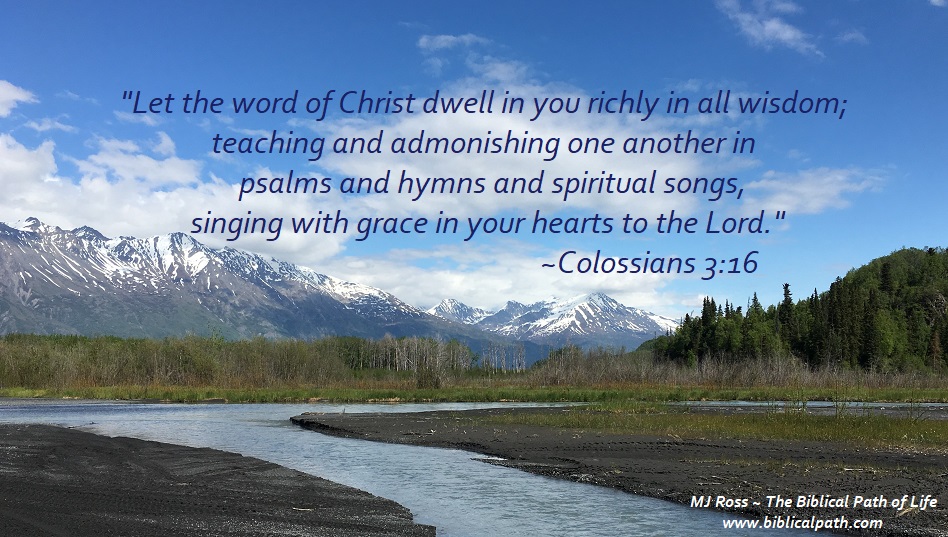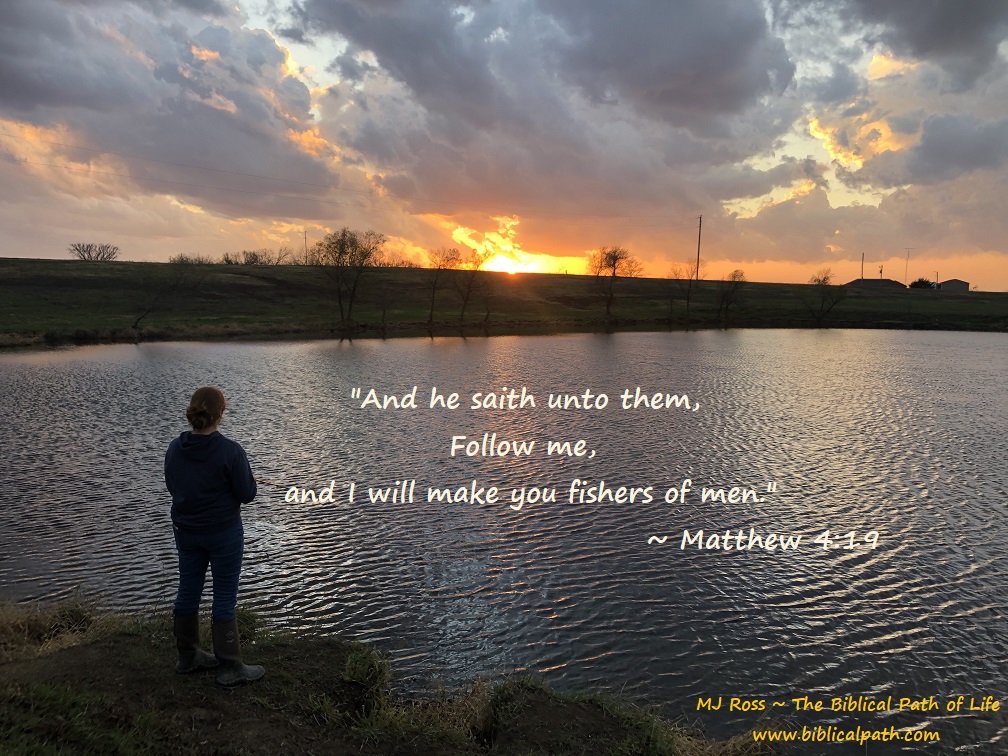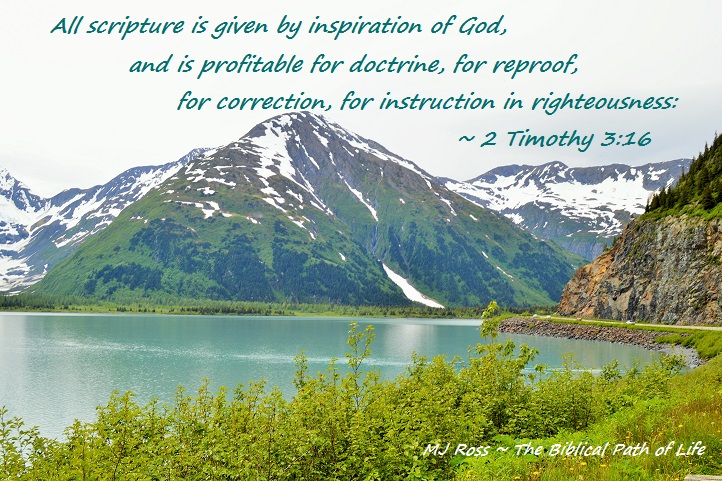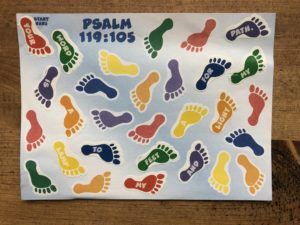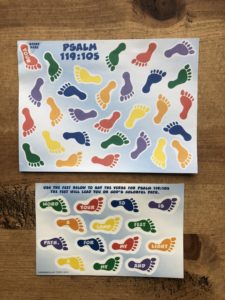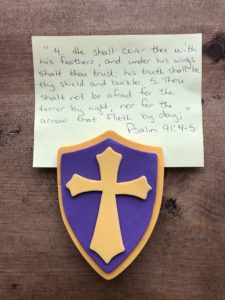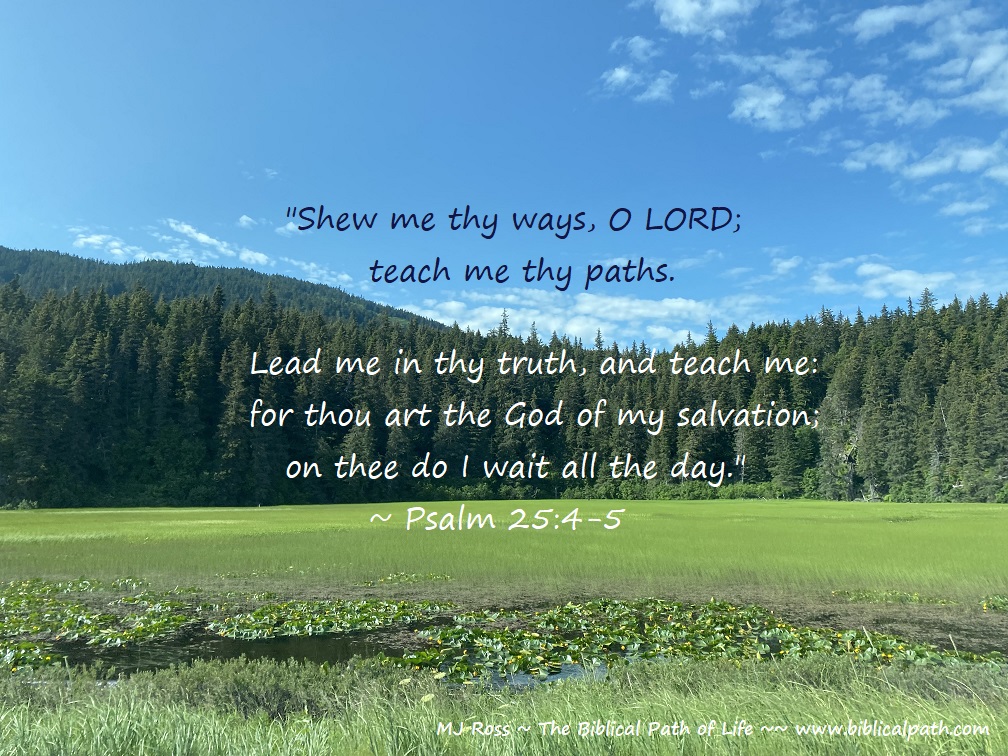
“4. Shew me thy ways, O LORD; teach me thy paths. 5. Lead me in thy truth, and teach me: for thou art the God of my salvation; on thee do I wait all the day.”
Psalm 25:4-5
Have you taken time to consider the importance of the words in the following hymn?
He Leadeth Me: O Blessed Thought!
Author: J. H. Gilmore (1862)
1. He leadeth me: O blessed thought!
O words with heavenly comfort fraught!
Whate’er I do, where’er I be,
Still ’tis God’s hand that leadeth me.
Refrain:
He leadeth me, he leadeth me;
By his own hand he leadeth me:
His faithful follower I would be,
For by his hand he leadeth me.
2. Sometimes mid scenes of deepest gloom,
Sometimes where Eden’s flowers bloom,
By waters calm, o’er troubled sea,
Still ’tis God’s hand that leadeth me. Refrain
Refrain:
He leadeth me, he leadeth me;
By his own hand he leadeth me:
His faithful follower I would be,
For by his hand he leadeth me.
This hymn reminds Christians of the importance of allowing God to lead their lives with “heavenly” encouragement as we traverse this world. Consider: the creator of the universe is interested in leading each of us as his dear children, expecting us to follow Him. “Be ye therefore followers of God, as dear children” (Ephesians 5:1).
Remember one of the most famous Psalms that David wrote to help us. “1. The LORD is my shepherd; I shall not want. 2. He maketh me to lie down in green pastures: he leadeth me beside the still waters. 3. He restoreth my soul: he leadeth me in the paths of righteousness for his name’s sake. 4. Yea, though I walk through the valley of the shadow of death, I will fear no evil: for thou art with me; thy rod and thy staff they comfort me. 5. Thou preparest a table before me in the presence of mine enemies: thou anointest my head with oil; my cup runneth over. 6. Surely goodness and mercy shall follow me all the days of my life: and I will dwell in the house of the LORD for ever” (Psalm 23:1-6). When one will follow the Lord, He will lead. The Lord will provide a place to reside while providing one’s needs. Sometimes the path may be in the “scenes of deepest gloom”. Yet even in those times, we are to remember “thou art with me; thy rod and thy staff they comfort me” (see Psalm 23:4). The Lord will lead. However, one must choose to follow. Each individual must seek the path that the Lord has for them. “4. Shew me thy ways, O LORD; teach me thy paths. 5. Lead me in thy truth, and teach me: for thou art the God of my salvation; on thee do I wait all the day” (Psalm 25:4-5). If we will ask, the Lord will lead. Not only will He lead, but He will teach as well. It is in those times that we become a faithful follower. Sometimes we must wait upon the Lord, and it is then we learn to be patient and trust in Him.
If one will only entrust the path of his or her life to the Lord as The Shepherd, it would change the outcome of that earthly life. It would be a life that is pleasing to the Lord.
Have you chosen to follow the Lord, seeking the path that He has for your life?

